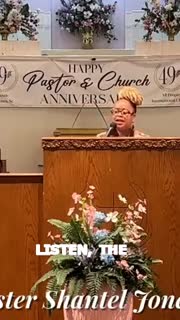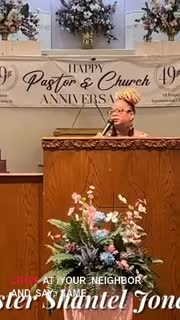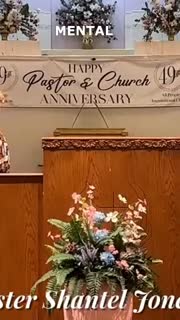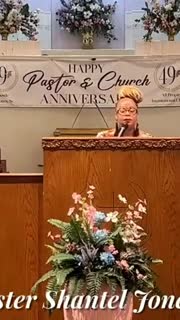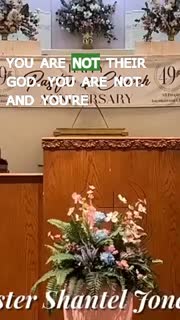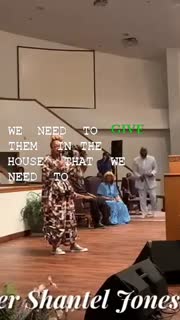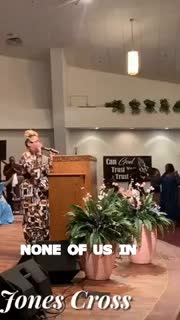Scattering Seeds of Grace: Forgiveness and Compassion
Devotional
Sermon Summary
Bible Study Guide
Sermon Clips
### Quotes for Outreach
1. "Listen, the Bible says that the righteous will scarcely be saved. We adopted the term and we said scarcely make it in. You know, you barely make it in. I hope I make it in. Woo, that was close. I almost made it in. I hope I make it in. I hope I make it in. I hope I make it in. I hope I make it in. Walking around with unforgiveness in your heart, you're going to burn in the same fire. not trying to put you in hell, but I'm trying to love you out of hell." [36:43] (27 seconds)
2. "Look at your neighbor and say, same fire. Now go out and restore relationships. Go to the cookout and enjoy your family and leave your Bible in the car. Whisper a prayer and say, thank you for the grace that found me God at my low place and let my light and my change be the example to my family that show that you are the ultimate life changer." [40:34] (29 seconds)
3. "Mental health is real. The suicide spirit is real. And these young people are leaving here at a rapid pace where the only thing they needed was a hug from their mama. The only thing they needed was I'm proud of you from their daddy. But your embarrassment is causing you to leave your children in forsaken situations. You are not their God. You are not. And you're your God. And you are their redeemer. But they have to see the love of Jesus through your life." [42:25] (30 seconds)
### Quotes for Members
1. "Some parents or some parents need to call and apologize for the treatment and the abandonment given for sin preferences and choices of their children. Some parents need to call and apologize and tell their child that they're sorry because their sin choice was not theirs. God has given somebody a chance to make amends. It is before it's too late." [38:36] (34 seconds)
2. "You are not their God. You are not. And you're your God. And you are their redeemer. But they have to see the love of Jesus through your life. They don't want your God because if your God is causing you to treat them the way that you are treating them, they don't want no part of your God. and if the love is not coming out of your house, why would they want to come in God's house?" [42:25] (31 seconds)
3. "We need to give them in the house that we need to let God do the changing we don't need to turn them around in the parking lot we are not their savior we are not their redeemer we are just the one to get them in the house to keep them out the doors come on let's stand to our feet and all over the building can you lift your hands up towards heaven." [44:56] (33 seconds)
4. "None of us in here are greater than the next. And that's the problem. We have these young people and these people thinking that we have everything together because we won't share our testimony of where God delivered us from. And if you would open your mouth and tell some of these people, I went through the same thing that you went through, they won't think that their lives are so jacked up." [47:36] (24 seconds)
Ask a question about this sermon
1. "Listen, the Bible says that the righteous will scarcely be saved. We adopted the term and we said scarcely make it in. You know, you barely make it in. I hope I make it in. Woo, that was close. I almost made it in. I hope I make it in. I hope I make it in. I hope I make it in. I hope I make it in. Walking around with unforgiveness in your heart, you're going to burn in the same fire. not trying to put you in hell, but I'm trying to love you out of hell." [36:43] (27 seconds)
2. "Look at your neighbor and say, same fire. Now go out and restore relationships. Go to the cookout and enjoy your family and leave your Bible in the car. Whisper a prayer and say, thank you for the grace that found me God at my low place and let my light and my change be the example to my family that show that you are the ultimate life changer." [40:34] (29 seconds)
3. "Mental health is real. The suicide spirit is real. And these young people are leaving here at a rapid pace where the only thing they needed was a hug from their mama. The only thing they needed was I'm proud of you from their daddy. But your embarrassment is causing you to leave your children in forsaken situations. You are not their God. You are not. And you're your God. And you are their redeemer. But they have to see the love of Jesus through your life." [42:25] (30 seconds)
### Quotes for Members
1. "Some parents or some parents need to call and apologize for the treatment and the abandonment given for sin preferences and choices of their children. Some parents need to call and apologize and tell their child that they're sorry because their sin choice was not theirs. God has given somebody a chance to make amends. It is before it's too late." [38:36] (34 seconds)
2. "You are not their God. You are not. And you're your God. And you are their redeemer. But they have to see the love of Jesus through your life. They don't want your God because if your God is causing you to treat them the way that you are treating them, they don't want no part of your God. and if the love is not coming out of your house, why would they want to come in God's house?" [42:25] (31 seconds)
3. "We need to give them in the house that we need to let God do the changing we don't need to turn them around in the parking lot we are not their savior we are not their redeemer we are just the one to get them in the house to keep them out the doors come on let's stand to our feet and all over the building can you lift your hands up towards heaven." [44:56] (33 seconds)
4. "None of us in here are greater than the next. And that's the problem. We have these young people and these people thinking that we have everything together because we won't share our testimony of where God delivered us from. And if you would open your mouth and tell some of these people, I went through the same thing that you went through, they won't think that their lives are so jacked up." [47:36] (24 seconds)
